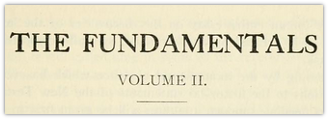God Loves Conditionally.
In no Scripture is there a statement, or even a clear inference, that “God Loves Us Unconditionally.” Rather, God’s Love for Believers is quite conditional upon the following specifications:
1.) By the Condition of Sovereign Choice. Romans 9:13, “Jacob I have Loved, Esau have I hated.”
2.) By the Condition of God’s Inherent Nature. I John 4:8, “God is Love.”
3.) By the Condition of Believing on Jesus. Acts 167:312, “Believe on the Lord Jesus Christ, and thou shalt be saved.”
Discussion
The Importance Of Material Demonstration Of Talk.
James 2:26 KJV, “As the body without the spirit is dead, so faith without works is dead also.”
Jesus and The Apostles materially demonstrated all they taught The Church to do, or at least they gave immensely significant signs to validate what they taught. James summarized this requirement of Living Spirituality in Christ for all Believers by writing 2:17-26.
Discussion
Christians and Mythology (Part 6: Recovering)
 The series so far.
The series so far.
Discussion
Christ and Criticism
[node:22019 collapsed body]

CHAPTER IV. CHRIST AND CRITICISM.
BY SIR ROBERT ANDERSON, K. C. B., LL. D. AUTHOR OF “THE BIBLE AND MODERN CRITICISM,” ETC., ETC., LONDON, ENGLAND.
Discussion